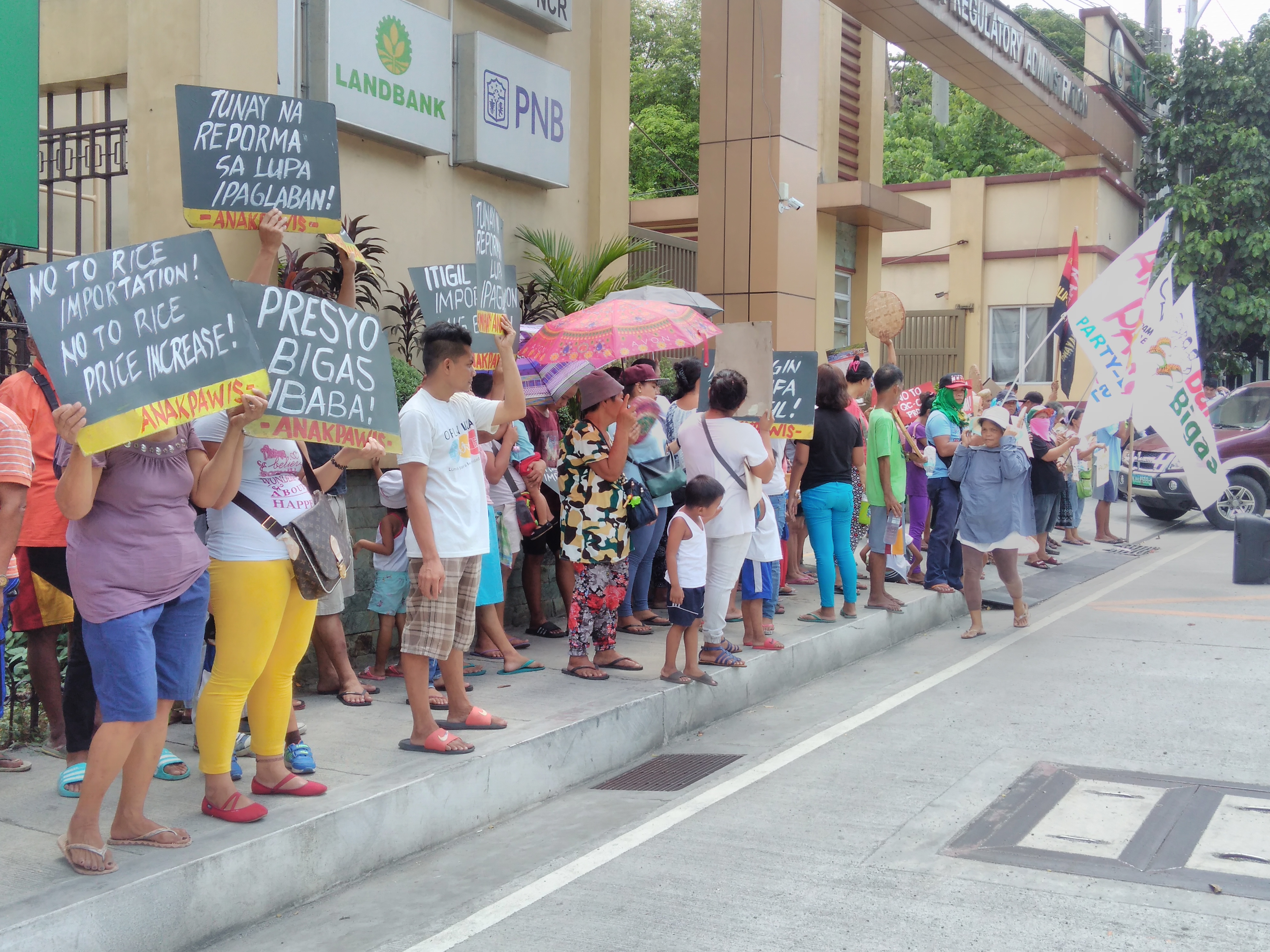Fisherfolk demands end to rice importation scheme
Manila, Philippines – Joining the call of the rice consumers watchdog Bantay Bigas, the national fisherfolk alliance Pambansang Lakas ng Kilusang Mamamalakaya ng Pilipinas (PAMALAKAYA-Pilipinas) on Wednesday aired their sentiment to end the era of rice importation and promote the welfare of local rice producers in the country.
On Wednesday, the Senate Committee on Food conducted a public hearing on the National Food Authority’s (NFA) importation policy and the scheduled expiration of the Quantitative Importation Restriction. The quantitative restriction (QR) on rice will expire on June 30. Under the QR, rice imports within the Minimum Access Volume (MAV) of 805, 200 Metric Tons (MT) were charged with an in-quota tariff of 35%, while all imports in excess of the MAV were assessed with a higher 50% tariff.
“How ironic that despite being agricultural country, we still import tons after tons of rice from the foreign traders at the cost of losing the livelihood of our local rice producers who are forced to sell their products to local private traders at the very low price because the NFA prioritized to buy the imported ones,”
“The systematic rice importation affects not only the farmers but also the consumers who bear the brunt of higher price of imported rice in the domestic market,” Fernando Hicap, PAMALAKAYA Chairperson said in a statement.
The fisherfolk group slams the Duterte administration’s lack of eagerness to extend the QR once it expires on June 30. The group said the absence of QR will further the anarchic importation of rice in the country.
The Department of Agriculture (DA) this year aims to import 250,000 MT of rice that will serve as the country’s buffer stock in time of “lean months” or the period where farmers await for their harvest.
But according to Bantay Bigas, meeting the country’s buffer stock during lean months has been a worn-out explanation used by the government to justify rice importation. The rice watchdog said top palay producing provinces like Nueva Ecija, Mindoro, and Isabela are able to supplement supply shortage in other provinces.
“Buffer stock should primarily come from our country and not from foreign market which we are not even sure if they are safe at all. The government should provide subsidies to our local farmers in order for them to be productive enough to produce rice for our domestic consumption and ensure rice self-sufficiency,”
“The Filipino people deserve sufficient, safe and affordable rice. It is the government’s duty to strengthen the local rice production through adequate state-subsidy to the farmers and assuring them that they have enough land to till,” Hicap added.
PAMALAKAYA also calls to scrap the World Trade Organization’s (WTO) Agreement on Agriculture which legalizes the country’s unwarranted import-dependent rice production. ###
